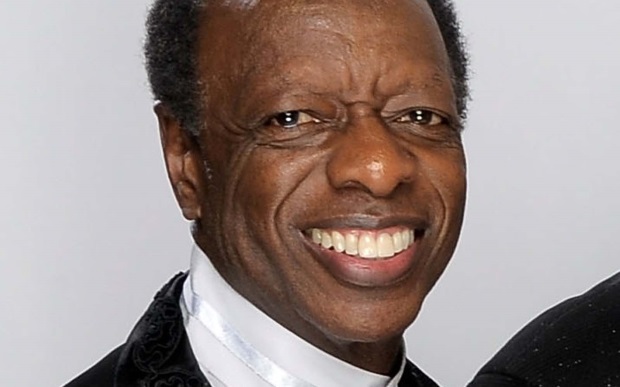
Interestingly, while the Spinners had not garnered much commercial success during their Motown years, they had earned the interest of a young producer named Thom Bell, who felt that the Spinners' tight harmonies and smooth delivery could be the perfect vehicle for his brand of sophisticated soul music. Along with Kenny Gamble and Leon Huff, Bell was the architect of the "Philadelphia Sound," a new style of orchestral soul music that borrowed as much from the big bands of the 40s and 50s as from the Motown sound of the 60s, all wrapped up in exquisite production that appealed to adults as much as to the teenagers that AM radio targeted. The success of that sound would ultimately pave the way for a new genre of music - Urban Adult Contemporary -- that would hit its peak over a decade later with artists such as Luther Vandross and Anita Baker.
With Bell's interest secured, the Spinners readied themselves for a fresh start on Atlantic Records. However, in a strange twist that would define the group for years to come, G.C. Cameron remained under contract with Motown and was forced to leave the group. So the Spinners recruited Cameron's friend, Philippe Wynne, to be their new lead singer. Wynne - a sly, talkative singer who preached, scatted and joked his way through material, turning every song into a dynamic story -- was a perfect contrast to the smooth, understated style of the rest of the group.
The result of the first Bell/Spinners collaboration was historic. The Spinners, released in 1973, was not only a bold statement of a new beginning for the group, it became one of the most important soul albums ever. Boasting four top 10 hits, "I'll Be Around," "Could It Be I'm Falling In Love," "One of a Kind" and "Ghetto Child," the disc immediately moved the Spinners to the upper echelon of soul music and established the Philadelphia Sound as the definitive sound of the early 70s. The Spinners, along with the Stylistics, the O'Jays and Harold Melvin & the Blue Notes, among others, shifted the soul music world's attention from Detroit to Philadelphia, and kept it there for most of the decade.
The Spinners/Bell train continued to roll for another seven albums, resulting in such classic songs as "Mighty Love," "Games People Play," "Sadie," "Then Came You" (with Dionne Warwick), and "I'm Coming Home." These were among the decade's finest discs, and the group members became international stars. However, as the decade wore on, the hits slowed down and the relationship between Bell, the group and the mercurial Wynne began to deteriorate. Wynne ultimately left the group in 1977 to pursue a solo career, teaming with George Clinton and the Parliament/Funkadelic crew. Sadly, he died in 1984. The group then selected John Edwards as its new lead singer. If Wynne's style was that of a sly cat, Edwards was that of a tiger, devouring songs with a huge voice and multi-octave range. Edwards was clearly a talent, but one to whom Thom Bell had trouble adjusting his restrained production style. To further complicate things, Bell's work with the group was beginning to sound dated and somewhat formulaic, and new hotter beats were emerging on the airwaves. After the disappointing From Here to Eternally, Bell felt that he had done all he could with the group, and the Spinners and Bell parted ways.
As 1979 arrived, the group found itself without a producer and three years removed from its last major hit. With the disco craze in full swing, the Spinners, with their more traditional sound, appeared anything but relevant. The group then surprised the music industry by putting its fate for the first post-Bell album in the hands of Michael Zager, a moderately successful dance producer whose style was as straightforward and blunt as Bell's was subtle and sophisticated. Their first Zager collaboration, the disappointing Dancin' and Lovin', stalled on the charts for several months until the album's second single, an unlikely dance remake of the Four Seasons' "Working My Way Back to You," hit the radio and zoomed to the top of the charts. This led to a smash remake of Sam Cooke's "Cupid" in 1980. While Zager was more workmanlike than dynamic on these songs, they were a success in large part because Edwards was able to unleash his monster voice, something that rarely happened under Bell's more stifling production.
The hits stopped coming by the mid-80s, but The Spinners kept chugging along as a tireless touring act, traveling several times around the world. Sadly, one by one the original members of the group died, but Fambrough kept the light burning as the group’s leader and last original member. By the time of The Spinners’ welcome 2021 album release ‘Round The Block and Back Again, the group consisted of members Fambrough, Jesse Peck, Curtis "CJ" Jefferson, Ronnie “Raheem” Moss, and Marvin Taylor.
In 2023, Fambrough announced his retirement, with the remaining four singers continuing as a quartet. I was blessed to talk with Mr. Fambrough about both some of the group’s highlights over the years and about his retirement. Ever humble, even as he passes the torch as an active performer with The Spinners, Henry Fambrough prefers to focus on the remaining group and not himself. When I asked if he has a message for his fans upon his retirement, he simply said, “Tell them The Spinners are still here and still singing for our people who want to hear us. And that’s not going to change. We’ll still be there for them.”
Happy birthday, Henry Fambrough!
by Chris Rizik
